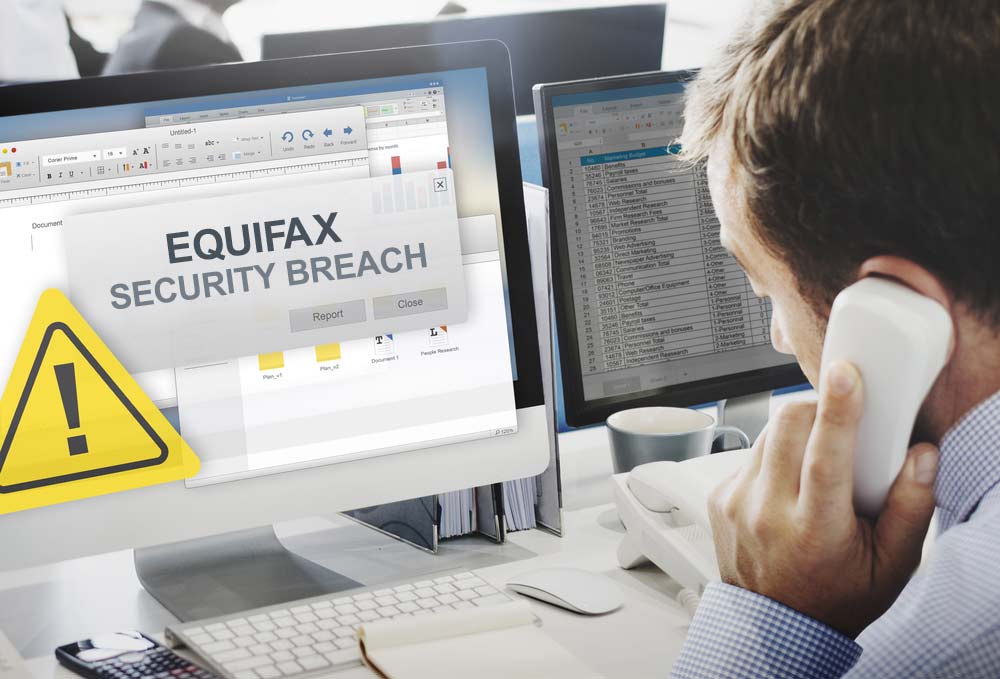The recent security breach at the Equifax credit reporting agency exposed a gold mine of personal information on 143 million Americans and created serious short-term and long-term problems for consumers.
Computer hackers hit the “Grand Slam” for identify theft when they gained access to consumers’ names, addresses, social security numbers and date of birth from Equifax files.
In the short-run, hackers can use your name and vital information to:
- Access existing credit card, checking, savings, retirement and 401(k) accounts
- Create new bank and credit card accounts
- Apply for loans
- Receive medical treatment and make insurance claims to pay for it
- File for tax refunds
- Rent housing and apply for utilities
The long-run effects are even worse.
Since your name, social security number and date of birth don’t change, the hackers can sit on this information for a year … or three years … or five years … or as long as they like before using it. Your address is the only thing they would need to update.
“This is a major breach that consumers need to take very seriously,” Etta Money, President and Chief Executive Officer of InCharge Debt Solutions said. “Don’t be fooled into thinking this problem will last a few months, then fade away. The personal information that was disclosed doesn’t change and can be used well into the future.”
Consumers can take steps to limit the damage, but because identity thieves can sit on the information for years, there is no telling when or if your information will be put into play.
The strongest defense consumers have to combat the effects from this is putting a security freeze on your credit with each of the credit reporting bureaus: Equifax, TransUnion and Experian.
The security freeze bars the credit bureaus from releasing information to banks, credit card companies and anyone else making a credit inquiry. It is extremely unlikely any lender will extend credit without first reviewing your credit report from one of the national credit bureaus.
And therein lies another problem: If you want a loan for a new home or car or a new credit card, you couldn’t get one if lenders can’t access your credit report because of a security freeze.
Consumers can lift the freeze by going online, using the phone or through the mail, but it can be a hassle. Removal of the freeze requires proof of identification, your PIN (personal identification number) and could require bank statements, utility bills or other documents.
Fees for a security freeze, or lifting one, vary from state-to-state, and range from $3 to $15.
Other protective measures are less confining, but require constant vigilance on your part to be effective. Here are some suggestions on steps to deal with the security breach:
- Sign up for a credit or fraud alert with the credit reporting bureaus. The fraud alerts notify vendors that you may be a victim of identity theft and vendors should verify the person is actually you. The alerts only last 90 days and must be renewed.
- Review your bank and credit cards monthly, if not weekly for unusual activity.
- Do not give out personal information, either over the phone or on the web.
- Go to annualcreditreport.com and request a free copy of your credit report. Check all accounts for unrecognizable activity.
- Avoid emails and links within emails that look authentic. If you’re not sure, call the company and ask for verification that the email is authentic.
- Change passwords on all accounts.
Equifax has set up a page on its website – www.equifaxsecurity2017.com – to help consumers find out if their information has been exposed.
It has been reported that more than 200,000 people had their credit card numbers stolen.
Equifax is offering U.S. consumers a year of free credit monitoring and other services.
“It is critical that consumers actively monitor all their accounts,” Money said. “I also suggest they take advantage of the free tools offered by Equifax to protect accounts. Just because you haven’t detected any problems now, doesn’t mean you won’t be compromised in the future.”
Sources:
- (2017, September 8) The Equifax Data Breach: What to Do. Retrieved from https://www.consumer.ftc.gov/blog/2017/09/equifax-data-breach-what-do
- Shell, A. (2017, September 11) How to defend yourself against identity theft after the Equifax data breach. Retrieved from https://www.usatoday.com/story/money/2017/09/11/how-defend-yourseafter-equifax-data-breach-credit-report-freeze-strong-defense-against-identity-thef/654065001/


















